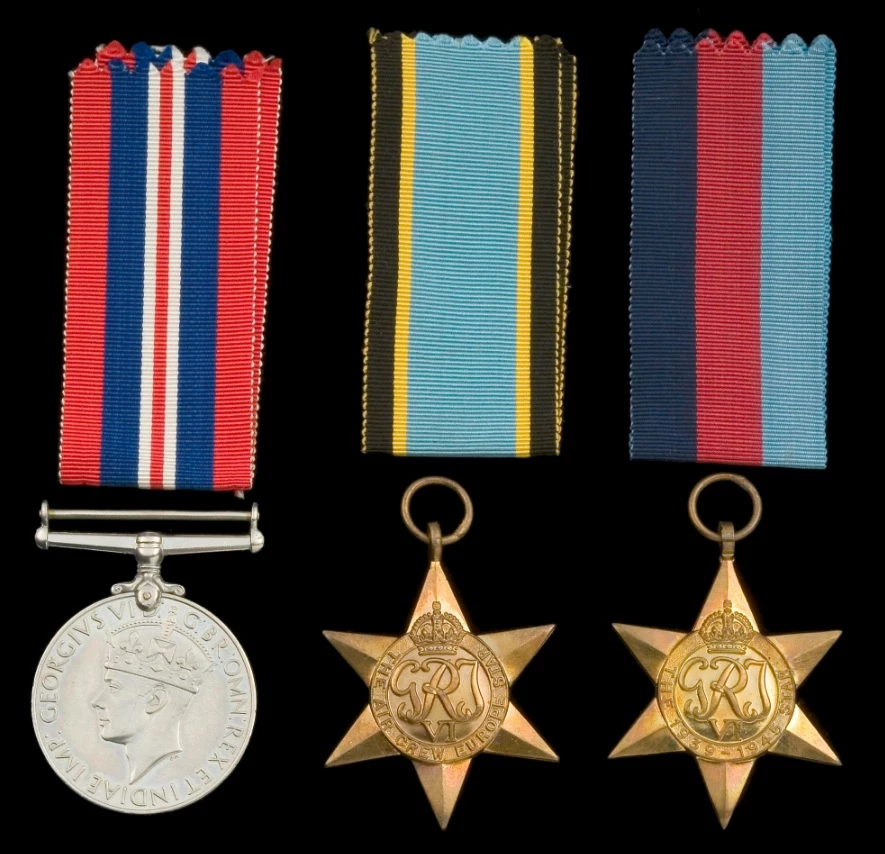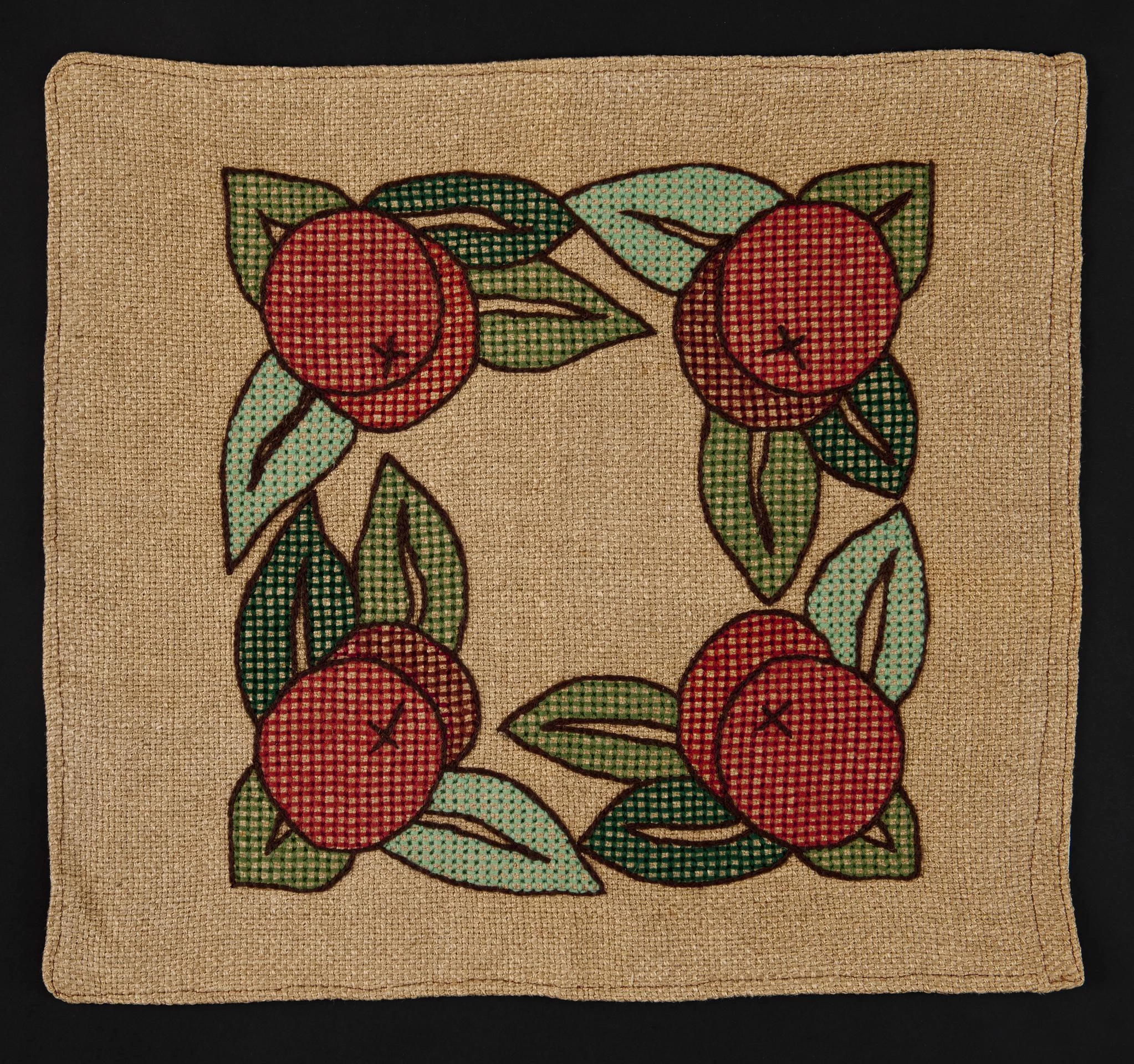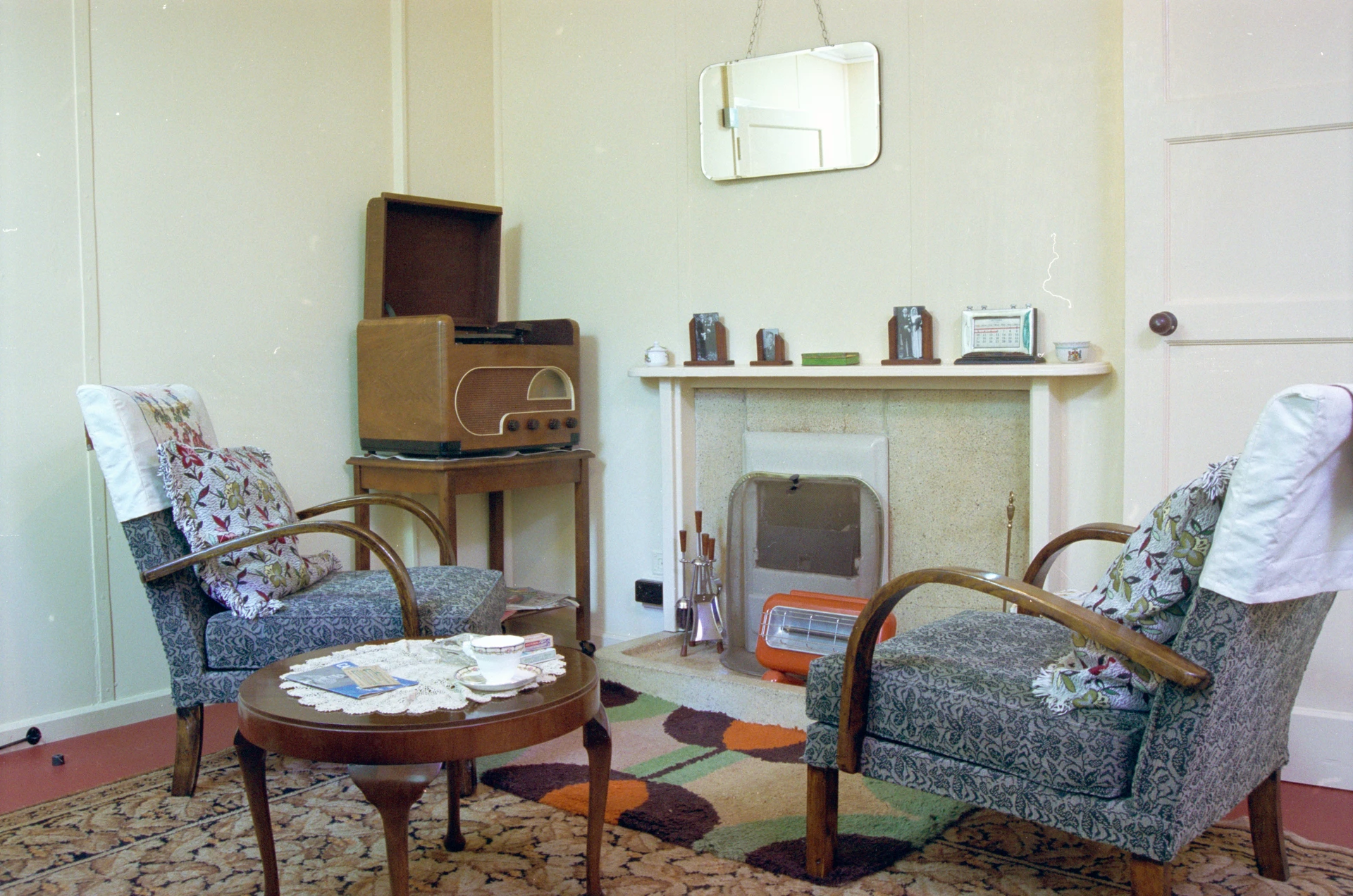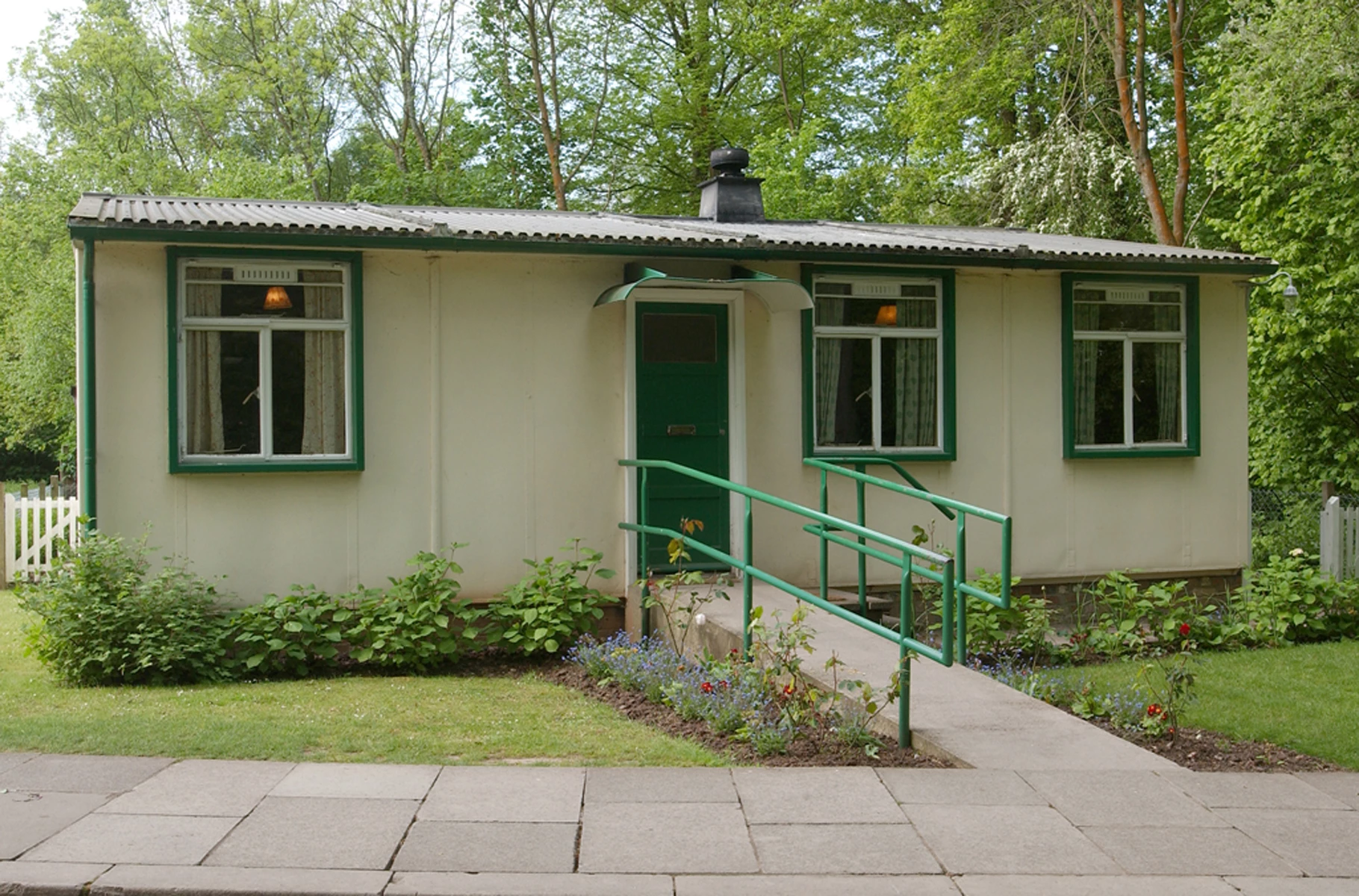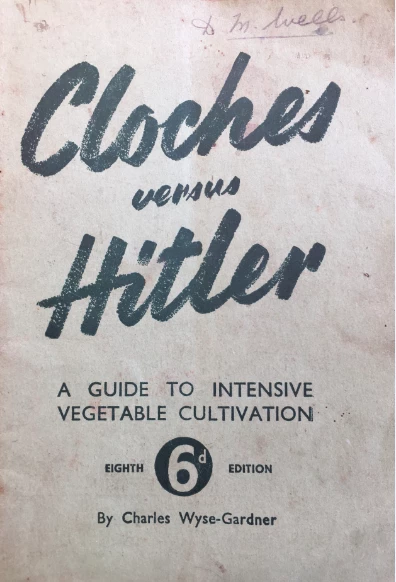Victory in Europe Day
VE Day marks the occasion in 1945 when the Allied forces accepted Nazi Germany's surrender, bringing an end to the Second World War in Europe.
Here you can learn more about Wales during the Second World War through objects from the collection.
Sgt Evans’ medals (from left to right): The War Medal, The Air Crew Europe Star, The 1939-1945 Star.
The National Museum Wales’ collection of Second World War medals attests to the incredible heroism and sacrifice of Welsh servicemen and civilians between 1939 and 1945.
Following food rationing in 1940, clothes rationing came into force in June 1941. The main reason was to reduce the need for raw materials and to redirect labour to war work.
Utility fireside chairs in the Prefab living room, St Fagans National Museum of History
In 1941, the Board of Trade designed a collection of furniture of simple design that could be produced cheaply, which was referred to as ‘utility furniture'.
Thousands of British homes were destroyed by bombing during the Second World War. They could not be replaced immediately because of the shortage of builders and materials.
Some have drawn similarities between our current situation and the Second World War – long queues outside shops, empty shelves and rationing of items in our supermarkets.
